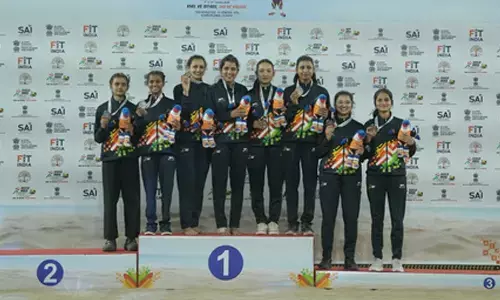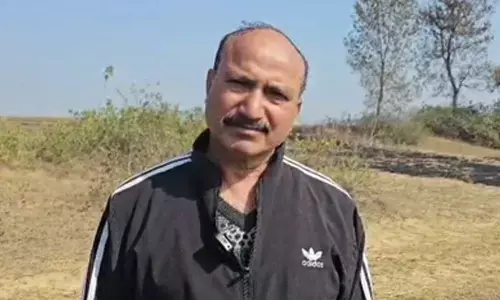Dengue incidence sees sharp rise in Hyderabad city

The number of dengue cases in the city between January to June in the year 2019 saw a steep rise when compared to that of last year. As many as 167 cases were reported between January and June this year, whereas 90 cases were reported during the same period in 2018, an increase of 77 cases.
Hyderabad: The number of dengue cases in the city between January to June in the year 2019 saw a steep rise when compared to that of last year. As many as 167 cases were reported between January and June this year, whereas 90 cases were reported during the same period in 2018, an increase of 77 cases.
According to the official figures available with the State Health Department, around 44 cases were reported in the city between January to June of 2017 and the total number of confirmed cases reported in that year were 669. In the year of 2018 there were around 596 confirmed dengue cases were reported and from January to June there were 90 cases were reported. Now, this year, the number has gone up to 167 confirmed cases till June 19, 2019.
Usually dengue cases will increase from July and going by the statistical figures, there were more dengue cases reported in September and October in the previous years. Dengue is a mosquito-borne disease caused by four different virus types and spread by the Aedes mosquito.
Dengue is spread by the Aedes mosquito, which prefers biting during the day time. Even a single mosquito bite can lead to dengue. Thus, it is important to protect ourselves during the day.
In rainy season, water stagnates in pits, and empty vessels or other containers which are kept out. This stagnant water provides favorable space for mosquitoes, carrying viruses, to breed.
Speaking to The Hans India here on Friday, Dr Gururaj Kulkarni, physician, Matrix Hospital in Ramanthapur, said already they were receiving three to four dengue patients everyday and usually the number of cases would increase after July due to the rainy season and water stagnation in many places, which has become a breeding place for mosquitoes, he said.
For mosquitoes breeding usually takes place in stagnant water inside the discarded tyres, disposable plastic cups, coconut shells thrown around homes, and inside the stored water vessels. So, as precautionary measures, people should not allow the water to stagnate, Dr Kulkarni added
Gandhi Hospital staff said that dengue cases started from January and two to three people died in March. Venkatesh Vavilla, chief entomologist, GHMC, said that they would conduct the training and coordination meetings with all the division's health department officials and they were chalking out a division-wise action plan to prevent dengue and also other mosquito borne diseases.
Mosquito App useful to public
The GHMC had launched the Mosquito App in 2017 to create awareness among citizens on the mosquito menace, mosquito borne diseases as well as how to keep the surroundings clean to avoid the mosquitoes. Mosquito App has 17 questions related to mosquitoes and users have to answer the questions in Yes or No format and at the same time user will get many tips pertaining to the mosquito borne diseases. Mosquito bite can cause many diseases like malaria, dengue, chikungunya and brain fever.















